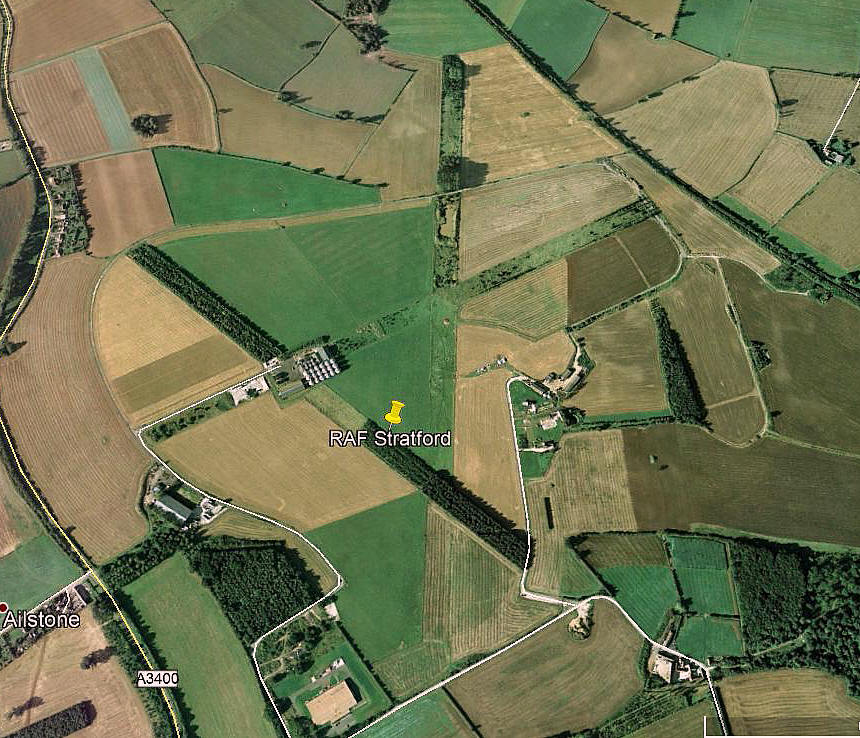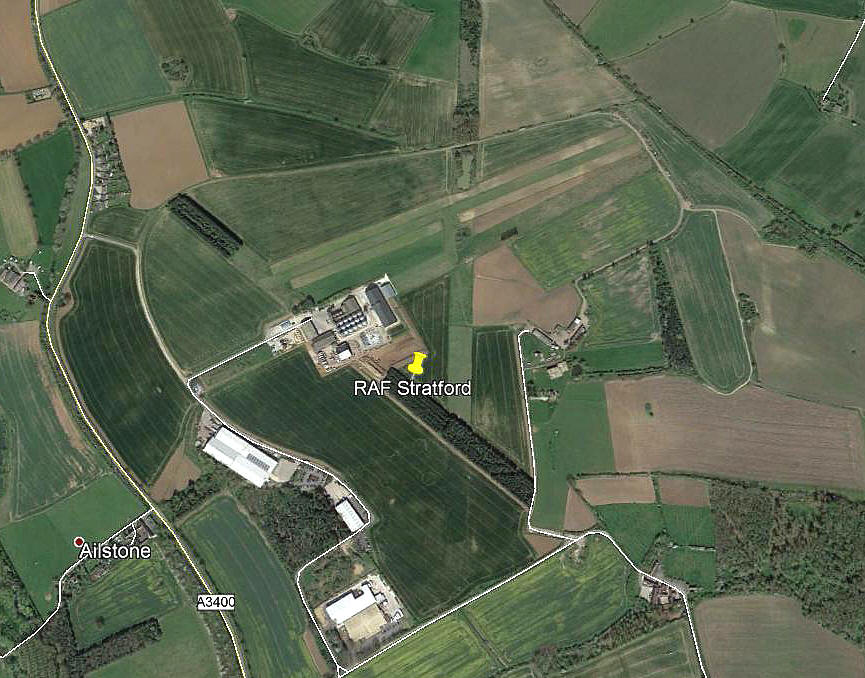Stratford
STRATFORD: Military aerodrome (Aka ATHERSTONE & ATHERSTONE on STOUR)
Today known as ALSCOT PARK (Private airfield - see seperate entry)
Note: Both of these pictures were obtained from Google Earth ©
Military user: RAF Bomber Command 91 Group
22 & 23 OTUs (Vickers Wellingtons)
Also US Army Air Force (Liaison only?)
Location: W of A34 (now A3400), NE of Atherstone, 2.5nm SSE of Stratford-upon-Avon
Period of operation: 1941 to 1945
Civil from ? Operational in the 2000s
Runways: WW2: 01/19 1463x46 hard 07/25 1234x46 hard
14/32 1106x46 hard
2000s: 06/24 900 grass
Note: This appears to be a newer grass runway laid out just north of and roughly parallel with the WW2 07/25 hard runway
NOTES: Opened as a SLG for No.22 OTU at Wellesbourne Mountford. In 1942 was controlled by No.23 OTU at Pershore. Reverted back to No.22 OTU for most of 1944
I suppose I have learnt something over the years? Shortly after starting out on this project I made this note: “Here again the records pose a couple of niggling doubts. It would appear that there were 27 hard standings for 27 heavy bombers. But if heavy bombers were actually stationed here, why were the runways so much shorter in length than the usual standards required?”
The answer was that Vickers Wellingtons were based here, which could use shorter runways. When WW2 started the Wellington was of course a heavy bomber. I had also gleaned information about this airfield, but the source stated it was known as ATHERSTONE and it was some time before I realised that both listings referred to the same airfield. This was a problem that cropped up several times in the early days; the difference between the local name and the official RAF name. The reason for the two names being that the RAF named the airfield after the nearest village or town with a telegraph facility.
We'd love to hear from you, so please scroll down to leave a comment!
Leave a comment ...
Copyright (c) UK Airfield Guide

















